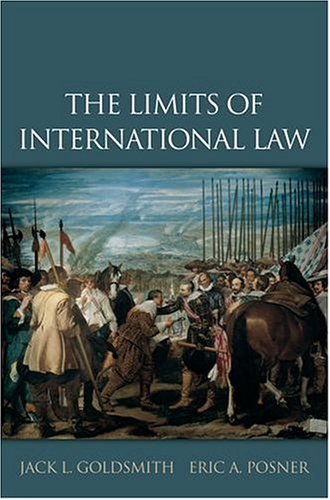We are now closed for the Christmas and New Year period, returning on Monday 5th January 2026. Orders placed during this time will be processed upon our return on 5th January.

The Limits of International Law argues that international law matters but that its scope and significance is far less than assumed by academics, the media, and many public officials. Adopting a rational choice framework, the authors show that international law is a term that we use to refer to variously circumscribed cases of international cooperation.
States are able to cooperate through international law but only under narrow conditions; much of international law merely;ratifies existing relationships, and has no independent normative force. Indeed, recent efforts to replace international politics with law and judicial process rests on a misunderstanding of the past accomplishments of international law. The Limits of International Law will have important implications for;debates about the role of international law in the foreign policy of the United States and other nations.